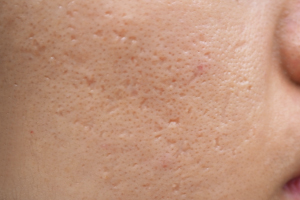

The membranes present in your nose and sinus passages help create nasal mucus. Your body produces more than a litre of mucus daily. You are so accustomed to it that you don’t even notice. The consistency of your mucus indicates what’s going on inside you. If you have a runny nose with clear mucus, it means you have excess drainage coming from your nose. If your mucus is green-tinged or yellow, your sinuses have caught an infection. Mucus can also be thick and rubbery, which happens from dry air, a bacterial infection, or other causes.
In this article, we have talked about the causes of hard nasal mucus and how to get rid of mucus in the nose.
What Causes Thick, Rubbery White Mucus in the Nose?
The mucus flows freely through your sinus passages, removing all the dust, bacteria, and pollutants. It then passes through your throat to your stomach, where all the irritants are destroyed. When your body needs to lubricate and cleanse your sinus system, it creates more mucus, which becomes stickier and rubbery. This happens because of the following reasons:
1. Dry Climate
A dry climate causes your sinus passages to be drier than usual, resulting in hard nasal mucus. Bacterial and viral infections can also cause your nose and sinuses to produce more mucus. The extra mucus helps flush out the bacteria that cause the infection. You may also experience inflammation of the nasal passages. This hard mucus may also have a little blood sometimes. This happens when the harder pieces are displaced in your sensitive mucus membranes.
2. Fungal Rhinosinusitis
Fungal rhinosinusitis can also irritate your nose, causing rubber-like mucus. In this condition, your mucus may also turn golden colour. This is when your body is working to fight off the infection.
3. Allergies
Allergies can cause excess mucus production, leading to sticky and rubbery pieces that get collected at the back of your throat and inside your nose.
4. Dehydration
If your body is not hydrated enough, your sinuses won’t have lubrication for a thinner consistency of mucus. Your mucus will get stuck between the nose and throat. Also, excessive sweating, exercising, and spending time outdoors in hot weather can dehydrate your body, leading to thick mucus.
How to Get Rid of Mucus in the Nose?
The treatment of thick, rubbery white mucus from the nose depends on the cause.
1. Herbal Tea
If you have a cold and your mucus is stuck between your nose and throat, you can treat it with herbal teas. You can also try over-the-counter decongestants. Consider consulting a healthcare expert if the symptoms persist after a few days.
2. Antihistamine
If allergens cause your hard nasal mucus, take an antihistamine. You can also use a saline nasal rinse and use it as needed to rinse out the allergens.
3. Nasal Irrigation Medicine
Fungal infections in your sinuses require medical intervention. Your doctor will prescribe a nasal irrigation medicine that lets you put antifungal ingredients into your nasal passages.
4. Drink More Water
Treatment for sticky and hard mucus caused by hot weather or excessive workouts is drinking more water, running humidifiers in your home, and using nasal saline spray.
When Would You Need a Doctor’s Help?
Thick and rubbery mucus is usually not a cause for concern. But, if you have a fever, a runny nose that doesn’t reduce, difficulty breathing, pain in your lungs, and whooping cough, you should seek medical help.
Tips to Prevent Thick Mucus
You can reduce the production of thick mucus by avoiding certain irritants.
- Smoking: It can make your mucus stickier. So, if you quit smoking, you may see reduced symptoms of thick mucus. Seek a doctor’s help if you want to quit smoking. A healthcare professional can help you with this.
- Humidifier: If the air in your surroundings is dry, you should install a humidifier at home. It adds moisture to the atmosphere and helps you breathe easier.
- Wear a mask: You should wear a mask if you are allergic to pollutants, poor air quality and other environmental irritants. This can help in preventing thick mucus production.
- Drink water: Water is essential for normal and thin mucus. Ensuring proper hydration will help you prevent the production of thick and rubbery mucus.
Conclusion
In conclusion, hard nasal mucus can develop due to various lifestyles and environmental factors. Numerous viral and bacterial infections can also trigger this condition. Changes in the consistency of your mucus are expected, but if you have other symptoms, consult a doctor.




